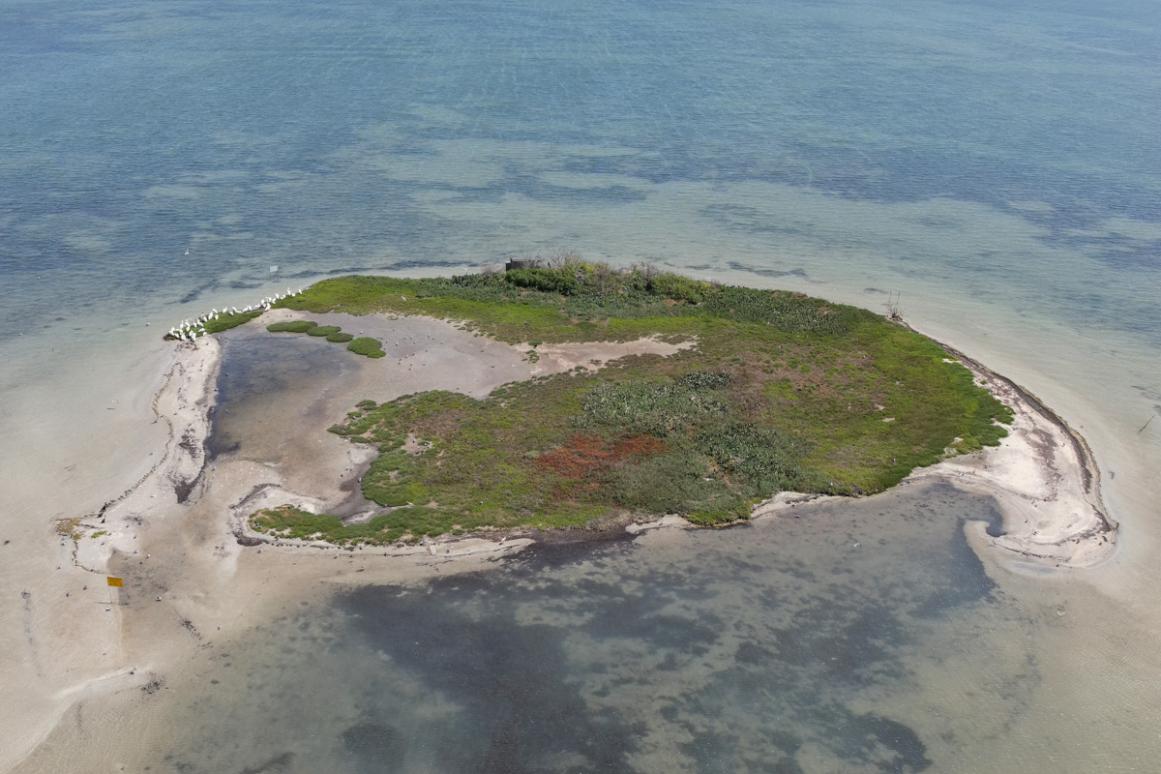NOAA Awards Over $3 Million in Funding for Harte Research Institute Collaborative Projects

Corpus Christi, Texas – The Harte Research Institute for Gulf of Mexico Studies (HRI) at Texas A&M University-Corpus Christi (TAMU-CC) is proud to announce that through the NOAA RESTORE Science Program, over $3 million has been awarded to project teams consisting of TAMU-CC and HRI researchers that will conduct collaborative Gulf of Mexico research on waterbird nesting and oyster reefs.
“I am thrilled to see these projects funded, as they all will have valuable implications for how we study and manage important Gulf of Mexico resources,” said Dr. Greg Stunz, HRI Senior Executive Director. “The work that TAMU-CC and HRI researchers will be able to accomplish as a result of these awards will undoubtedly make a meaningful difference for the health of Gulf ecosystems.”
Colony Island Network Design and Implementation (CINDI): a prioritization tool to rehabilitate the colony islands along the Texas coast, led by Dr. Dale Gawlik, HRI Chair for Conservation and Biodiversity, received $2,000,453 as part of the program funding. This project will develop a prioritization tool that incorporates biogeophysical constraints on waterbird nesting and economic considerations to help managers prioritize a network of colony islands in Texas. This project builds on the success of a two-year pilot study funded by the Knobloch Family Foundation that was applied to a small section of the Texas coast. (learn more about this project HERE)
“The CINDI team is excited about providing coastal managers with the quantitative tools to focus scarce conservation dollars toward those islands that can be cost-effectively restored and have the biggest benefit to bird populations,” Gawlik said.
Additionally, DECORATE: Developing an Ecosystem-based Conservation framework for Oyster Reefs Across Texas Estuaries received $1,996,417 in funding. The project is being led by Simon Brandl of the University of Texas Marine Science Institute, with a project team consisting of Dr. Jennifer Pollack, who holds the Larry D. McKinney Endowed Chair for Coastal Conservation and Restoration, and HRI Fellows at TAMU-CC, Dr. Keisha Bahr and Dr. Daniel Coffey. This project will quantify the effects of oyster reef closures and other drivers on oyster reef functioning to help managers decide when and where reefs may benefit from being closed or managed using alternative solutions.
“This project will provide important information to help evaluate and inform conservation and management actions aimed at maintaining sustainable oyster habitats and harvests in Texas,” Pollack said. “As co-production lead for this project, I am excited for the opportunity to help advance communication and collaboration between TAMUCC and UTMSI researchers and TPWD resource managers.”
Teams began their projects on October 1, 2023, and will receive up to five years of funding. More information about all of the projects recently funded through the NOAA RESTORE Science Program can be found at the below link:
This research is funded by the National Oceanic and Atmospheric Administration’s RESTORE Science Program under award NA21NOS4510176 to Texas A&M University-Corpus Christi.
